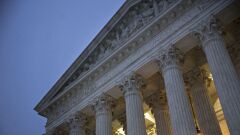At year's end, 2022 has been an eventful year for tax professionals. New legislation, regulations, court decisions and IRS pronouncements have all had an impact on the tax landscape. While the major developments are familiar to many professionals, there are some that might have been overlooked due to the busy nature of the profession. And, of course, the year is not over. Despite the comprehensive list that follows, remember that something more might occur prior to the end of the year.
Below are some of the more important developments for the year, as selected and explained by David De Jong, CPA, LLM, a partner at the Rockville, Maryland, law firm of Stein Sperling Bennett De Jong Driscoll PC.






















